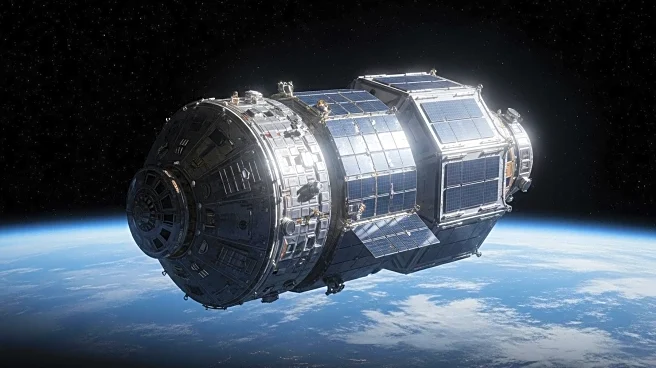What is the story about?
What's Happening?
The unpiloted Progress 93 spacecraft has successfully docked at the International Space Station (ISS), delivering approximately three tons of essential supplies to the Expedition 73 crew. The docking occurred at the aft port of the ISS's Zvezda module at 1:23 p.m. EDT on September 13, 2025. This mission, managed by Roscosmos, launched from the Baikonur Cosmodrome in Kazakhstan on September 11, 2025, at 11:54 a.m. EDT. The cargo includes food, fuel, and other necessary supplies to support the crew's ongoing operations. The Progress 93 will remain attached to the ISS for about six months, during which it will be loaded with trash by the crew before its scheduled re-entry into Earth's atmosphere for disposal.
Why It's Important?
The successful docking of the Progress 93 spacecraft is crucial for maintaining the continuous operation of the ISS, which serves as a pivotal platform for international space research and collaboration. The delivery of supplies ensures that the Expedition 73 crew can continue their scientific experiments and daily activities without interruption. This mission underscores the importance of international partnerships in space exploration, as the ISS is a joint project involving multiple space agencies, including NASA and Roscosmos. The resupply missions are vital for sustaining the crew's health and safety, as well as for the advancement of scientific knowledge through experiments conducted in the unique microgravity environment of the ISS.
What's Next?
Following the successful docking, the Progress 93 spacecraft will remain attached to the ISS for approximately six months. During this period, the crew will utilize the delivered supplies and prepare the spacecraft for its eventual departure. The Progress 93 will be loaded with waste materials from the ISS, which will be incinerated upon re-entry into Earth's atmosphere. Future resupply missions are expected to continue supporting the ISS, ensuring the station remains operational and continues to contribute to scientific research and international cooperation in space.
















